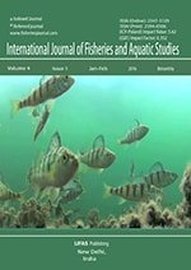 Effects of molasses and compost tea as foliar spray on water spinach (Ipomoea aquatica) in aquaponics system International Journal of Fisheries and Aquatic Studies 2017 Full Article Here A group of brainy botanists from Bangladesh wondered if they could improve the yield of their water spinach crop by supplementing plants with foliar sprays. The crop is grown in a recirculating hydroponic system using a NFT design (Nutrient Film Technique) which flows shallow water over the plant's root. The effluent of is then returned to a reservoir which contains fish, in this case tilapia. The fish's waste becomes plant food through a microbial process called nitrification. There are limitations to growing certain plants aquaponically, as the nutrient levels must remain low enough to ensure the health of the fish. The use of supplemental foliar sprays is used to introduce essential nutrients that might be in limited supply. The scientists in this case wanted to see if there was benefit to using a simple aerated compost tea. In the experiment, they sprayed spinach with either aerated compost tea, a molasses solution, or just plain water. They found that the spinach grown with the compost tea spray was significantly heavier than spinach grown with the molasses spray, and well more so than the spinach sprayed only with water. The experiment showed that compost tea has a place in emerging aquaponic technology.
0 Comments
Your comment will be posted after it is approved.
Leave a Reply. |
Archives
June 2024
Categories
All
|
Contact Us
Why TeaLAB?TeaLAB is committed to helping people and their gardens to become more self- sufficient, healthier, and productive. Grow your sweetest corn, your biggest watermelon, your tallest quinoa, your tastiest tomato, and your happiest you.
TeaLAB was founded to teach people how to garden organically, so that we can become more closely connected with the land. Our goal has been to simplify growing methods so that gardeners have a positive experience in the garden. TeaLAB is where the garden meets the laboratory. From around the world and into your backyard, our products contain ingredients that are sourced both locally and globally. Using methods both ancient and cutting edge, TeaLAB promotes maximum biology. Grow with TeaLAB. |

 RSS Feed
RSS Feed
